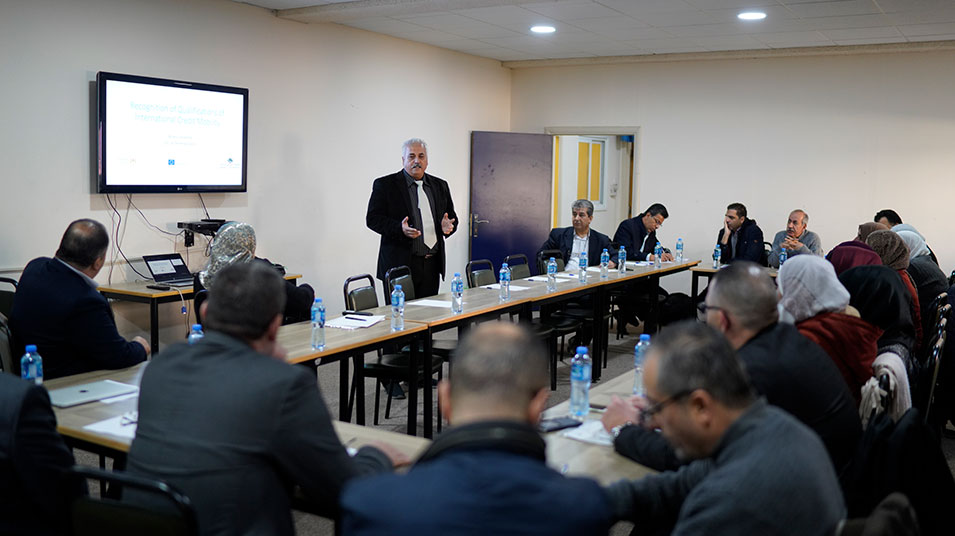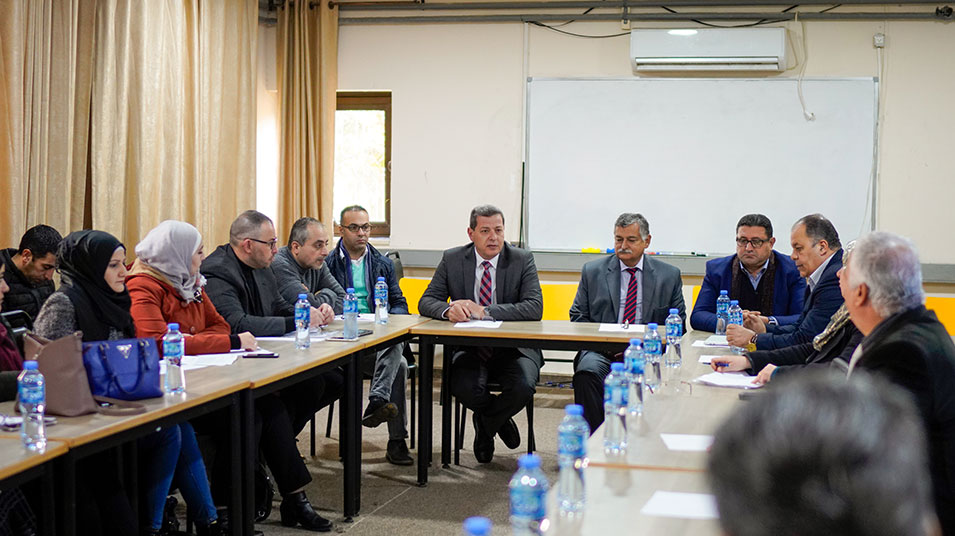Workshop discusses mobility and recognition in Erasmus+ International Credit Mobility programs
Birzeit University, the Palestinian Ministry of Higher Education and Scientific Research (MoEHE), and Erasmus+ held a joint workshop titled “Recognition of Qualifications Obtained in International Credit Mobility” on December 10, 2019, discussing ways to enhance the regulations for the recognition of courses and grades given by non-Palestinian institutions upon conclusion of a mobility program.
International credit mobility (ICM) is one of the most important features of Erasmus+ projects. Held under the umbrella of the Higher Education Reform Experts (HEREs) committee of the Erasmus+ program, the workshop discussed the general strengths and weaknesses of the recognition system in higher-education institutions and particularly addressed the recognition of qualifications obtained through ICM in Palestine and the region.
Vice President for Academic Affairs Khalid Swaileh asserted the university’s commitment to providing a varied, interactive learning experience for its students by offering them the opportunity to gain knowledge while being exposed to foreign cultures, a significant experience in today’s interconnected world.
Swaileh emphasized the importance of applying a solid, transparent recognition system for studies undertaken and qualifications obtained in the Erasmus+ mobility programs. He praised the MoEHE’s efforts in facilitating mobility for Palestinian students worldwide, and hailed their supervision of and feedback to the HEREs committee that continuously aims to develop the relevant recognition regulations.
Ihab Qubbaj, assistant deputy minister at the MoEHE, explained the ministry’s role in encouraging mobility programs for students of higher education institutions and highlighted its efforts in providing transparent and flexible regulations to ratify and recognize the courses foreign students may take at Palestinian universities, and vice versa, through international mobility programs.
Mousa Omar, Erasmus+ program officer, affirmed his institution’s awareness of the need to constantly improve the recognition and validation of credits and qualifications gained during learning periods abroad. He stated that high-quality mobility activities with a maximum impact for students must be encouraged by making sure that any mobility activity is compatible with a student’s degree-related learning and with his or her personal needs and aspirations.
Also speaking at the workshop were Ahmed Abu Hanieh, head of HEREs at Birzeit University; Jamal Seyam, the university’s registrar; and Raed Barakat, the head of the accreditation department at the MoEHE.
The speakers discussed the specific roles of the ministry and of higher education institutions and presented ways in which Erasmus+ aims to overcome the core challenges to the recognition of credits gained during student mobility. Such challenges include the equal recognition of grades and credit hours from other accreditation systems (ECT), differences in teaching languages, differences in passing grades between home and international universities, and other concerns.








